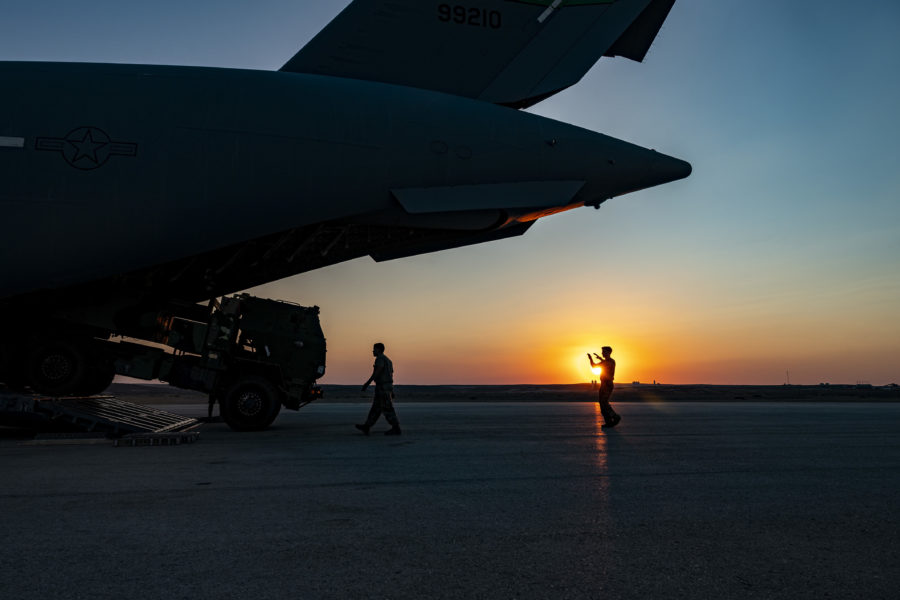The United States ended its combat mission in Iraq and will transition to an “advise, assist, and enable” mission supporting Iraqi forces, reported Combined Joint Task Force-Inherent Resolve Dec. 9.
“Many brave men and women gave their lives to ensure Daesh never returns, and as we complete our combat role, we will remain here to advise, assist, and enable the [Iraqi security forces],” Maj. Gen. John W. Brennan, Jr., commander of CJTF-OIR, said in a press release, using the Arabic word for Islamic State.
The U.S. military’s 2,500 troops made the transition to a non-combat role ahead of its Dec. 31 deadline, and will now remain in Iraq at the invitation of the government.
“We are confident that the fruits of our strong partnership will ensure Daesh will not reconstitute and threaten the Iraqi people,” Brennan added.
Four years after the defeat of the Islamic State group in Iraq, Iraqi Staff Lt. Gen. Abdul Amir al-Shammari, deputy commander of the Joint Operations Command for Iraq, said Iraqi soldiers have “demonstrated their ability to maintain the defeat of Daesh.”
The announcement of the transition to a non-combat role came at the conclusion of military technical talks between the governments of Iraq and the United States that began in July.
According to the new agreement, coalition personnel will be guests on Iraqi bases and protected by Iraqi forces.
Pentagon spokesman John F. Kirby said Dec. 9 that the U.S. forces operating in Iraq will continue to maintain the right of self-defense.
“We have to assume that threats to U.S. forces remain credible in Iraq,” he said of American troops, who have been fired on by Iranian-backed militias.
“We always have the right and the authority and the capability to defend our troops, to defend our resources, wherever we are, that doesn’t change,” he added.
Kirby also said the transition to a non-combat role has been a long time in the making.
“We had been making this transition for quite some time,” he said. “They have been working themselves out of offensive combat operations against ISIS for quite some time. And the … vast majority of what they’ve been doing for a while now has been advise, assistant, and train.”
Brennan said, “Daesh is down, but not out. We will advise and assist our partner forces to enable the protection of the people of Iraq.”
The end of combat operations in Iraq comes about four months after the U.S. withdrew its forces from Afghanistan after two decades of war.
U.S. officials continue to caution about the ongoing threat not only from violent extremists like the Islamic State group, but also from Iran and its proxies, though U.S. Central Command’s director of operations was optimistic about the current state in Iraq.
“In Iraq and Syria, I see a lot of reason for hope,” said USAF Maj. Gen. Alexus G. Grynkewich, director of operations for U.S. Central Command, during a Dec. 6 virtual AFA event. “I see ISIS still on the ropes. I see the potential for some real progress in Iraq. There’s plenty of risk there. Things could certainly go wrong. There’s people who want to make them go wrong, particularly in Tehran. But, there’s a lot of reasons for hope, and we should all be proud of the trajectory that that’s on.”

